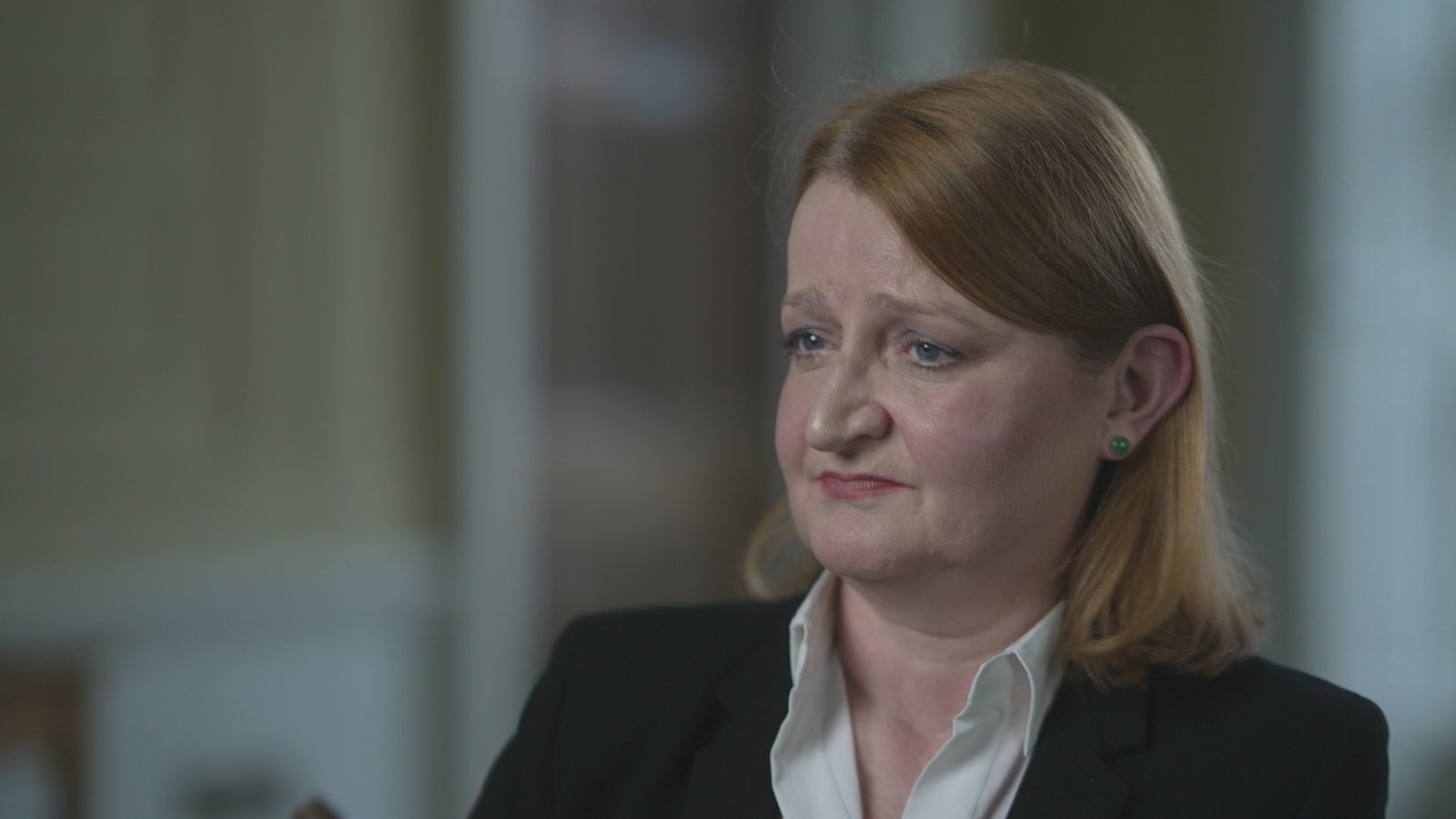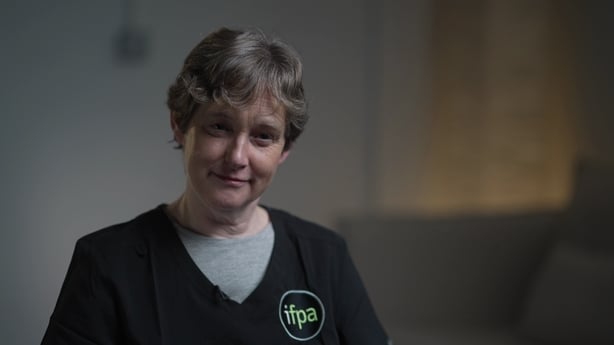Leading barrister calls for urgent reform of abortion services

The author of a landmark review of Ireland’s abortion law has called on Government to prioritise ongoing issues with the legislation, saying vulnerable women who continue to be forced abroad for terminations are being treated like “criminals”.
In an exclusive interview with RTÉ Investigates, Barrister Marie O’Shea criticised a lack of action on many of the legislative recommendations contained in her report, saying some pregnant women are, as a result, being left to face “profoundly sad conditions”. The review was delivered to Government early last year.
“I don’t believe that the intention of the Oireachtas at the time was just to do the review simpliciter and leave it there on a shelf to gather dust,” Ms O’Shea told RTÉ. “Something has to happen, but it does take political will and courage to do that, and it certainly needs political leadership from the top.”
Ms O’Shea was commissioned by the Department of Health to conduct her review on foot of the introduction of abortion legislation here in early 2019, following a majority rejection of the Eighth Amendment of the Constitution Act 1983 in a May 2018 referendum.
The Termination of Pregnancy Act provided for such a review three years after its implementation.

Among Marie O’Shea’s recommendations are that Ireland’s mandatory three-day wait be made optional.
Here, abortion laws mandate an obligatory three-day waiting period before termination medication can be prescribed. But Ms O’Shea’s review states that often extends to a four or five day wait if abortion services are unavailable at weekends or on public holidays.
“The Chief Medical Officer confirmed to me there’s no medical need for it,” she said.
Issues with the three-day wait have surfaced nationally.
“In any situation where someone’s going to make a big decision or have a medical procedure everybody wants them to have sufficient time to take in the information relating to that procedure and be certain that they’re ready to proceed, that’s called informed consent,” said Dr Caitríona Henchion, Medical Director with the Irish Family and Planning Association (IFPA).
“The problem is actually stipulating in law that every woman must wait a minimum of three days.”
The IFPA says the lack of necessity for a mandatory waiting period is also borne out in what it sees at its clinics every day.
According to the IFPA’s most recent figures, in 2022, of the 566 women who were subject to the three-day wait while accessing abortion care with it, just 2% opted to continue their pregnancies.
It is likely, Dr Henchion says, those women would have come to that decision regardless of the legally imposed wait.
“If somebody is absolutely fully informed, has had whatever time they need, whether that be one day, two days or a week to make their decision, then I would respect that person’s autonomy and say they’ve made their decision and they know what they want,” Dr Henchion said.

In Ireland, abortions are largely only permitted during the first 12 weeks of pregnancy.
Up against that tight timeline, the required three-day wait can, according to Marie O’Shea, impose a physical and psychological burden on women, possibly causing them to time out of care here.
“Twelve weeks does sound like quite a lengthy time to get yourself to a GP but there are categories of people who have an irregular menstrual cycle, who are using contraception and unknowingly it fails, who mistake the signs of pregnancy for something else and people who have chaotic lifestyles,” Ms O’Shea said.
“So, for a variety of reasons people may present when they’re perilously close to the end of the 12-week period and that’s a problem.”
That’s the situation ‘Niamh’, who’s asked not to be identified, found herself facing in 2022. She was aged in her early twenties when she discovered she was two months pregnant.
“When you’re in that position, you just don’t want to wait so I was ready for this just to be done and just get the pills and take them.”
Edging ever closer to the 12-week cut off limit, Niamh took the abortion pills and believed she had miscarried. But when she missed her period again the following month, she was immediately referred to hospital for a scan, where she was told the abortion had failed and she was still pregnant.
“I have never had a moment in my life where my mouth has dropped and that was it.”

Despite having started the abortion process in Ireland inside the permitted first 12 weeks of pregnancy, Niamh was now told because she had slipped beyond that time limit, she could no longer access abortion care here.
“I didn’t know who to contact or what I was supposed to do,” Niamh told RTÉ Investigates. “I just remember crying all night. It is so cruel because I just was shocked that I was going to have to go abroad. I never pictured it being like that because we have the service here.”
However, abortion laws in Ireland still contain a risk of criminal sanction if medical practitioners facilitate an abortion outside the strict 12-week rule.
This, Marie O’Shea’s review states, must be removed because in some cases it is leading to overly cautious, risk-adverse decision making which is tending towards refusing abortions.
“There’s a risk that the guards could coming knocking on your door and the DPP might bring a prosecution and the maximum penalty in this Act is 14 years in prison – that’s hanging over your head,” Ms O’Shea said.
If Government removed that obstacle, it would, Marie O’Shea believes, allow for greater medical compassion including in failed termination cases where women like Niamh are forced to travel abroad to complete their abortion care.
The same is true, Ms O’Shea adds, of foetal anomaly cases.
In Ireland, terminations are only permitted beyond 12 weeks of pregnancy in strict circumstances.
Section 11 of the Termination of Pregnancy Act requires that when a foetal anomaly (an unexpected condition in the development of the foetus) is detected, an abortion can only be carried out if two doctors agree, having examined the pregnant woman, that the condition affecting the foetus is likely to cause its death before it is born or within 28 days of birth.
This, however, according to the O’Shea report, lacks clarity and is difficult to implement in practice, even in cases where the condition may be fatal and associated with severe morbidity and/or disability and there is not any definitive list of conditions where death occurs in utero or within 28 days of birth.
“What I have said to the Minister of Health is that this 28-day [rule] is an absolute and utter nonsense. It’s cruel and it’s too prescriptive. It’s not good law and it leads people to be in absolutely profoundly sad conditions,” Marie O’Shea told RTÉ Investigates.
“If you have to send somebody abroad, culturally and socially you’re framing it as a criminal and abhorrent act and that’s in a person’s head and I don’t think the electorate would want somebody carrying around that stigma,” she added.

Marie O’Shea has also described as “appalling” a failure by Government to regulate the pregnancy counselling sector saying that quality assurances measures are needed to safeguard women from misinformation and “rogue counselling agencies” that aim to deter or obstruct access to abortion services in Ireland.
“They are interfering with reproductive health decisions, their [women’s] autonomy and they’re able to do it with absolute impunity and that’s the worst thing. It’s not regulated at all. It’s not regulated in statute; it’s not regulated anywhere else. It’s appalling,” Ms O’Shea said.
Addressing Marie O’Shea’s recommendations for legislative change will present difficult choices for Government. RTÉ Investigates put a series of questions to the Department of Health asking how and when it proposes to do so.
In a brief statement, a spokesperson said in December 2023 the Joint Committee on Health submitted a report to the Department regarding Ms O’Shea’s review.
“The Minister and the Department are considering this Report.”
The Joint Committee on Health approved by majority the recommendations of the O’Shea review.
Watch RTÉ Investigates: Ireland’s Abortion Services on Monday April 15 at 9.35pm on RTÉ One and RTÉ Player.
Documentary produced/directed by Lucy Kennedy.





